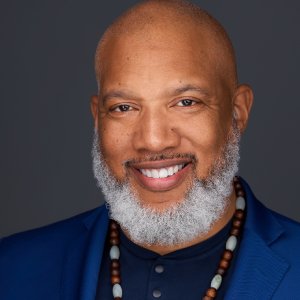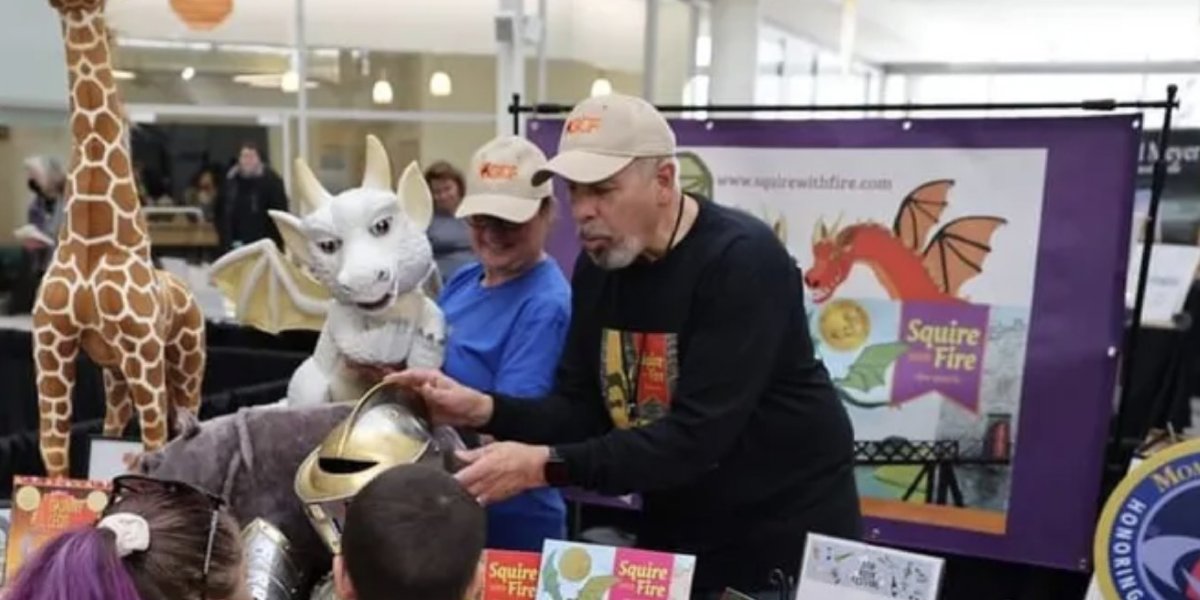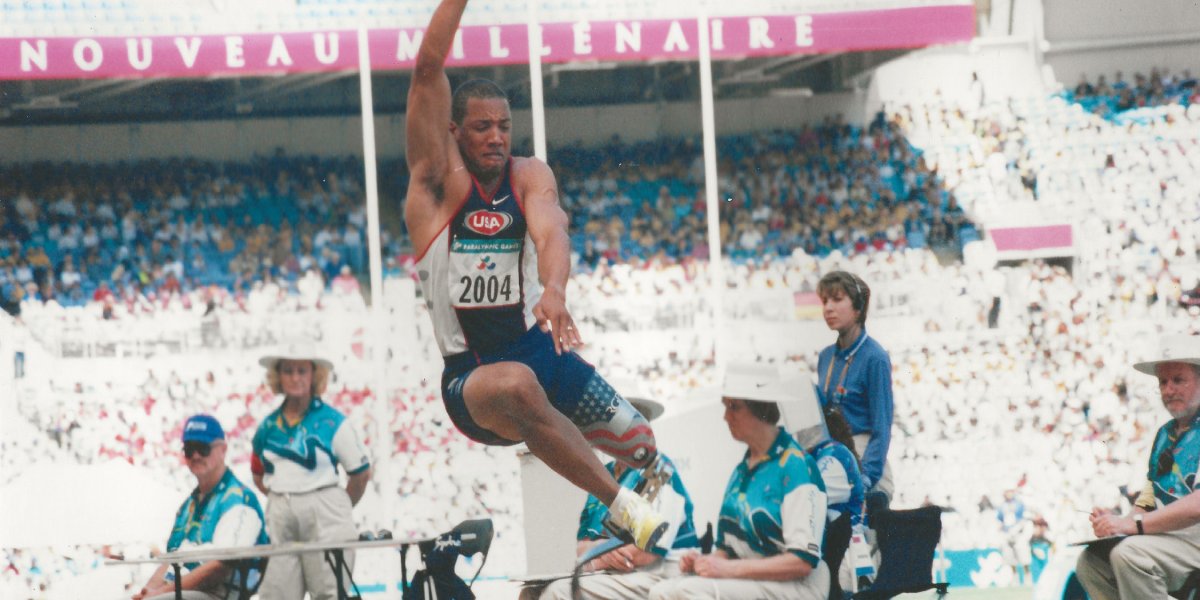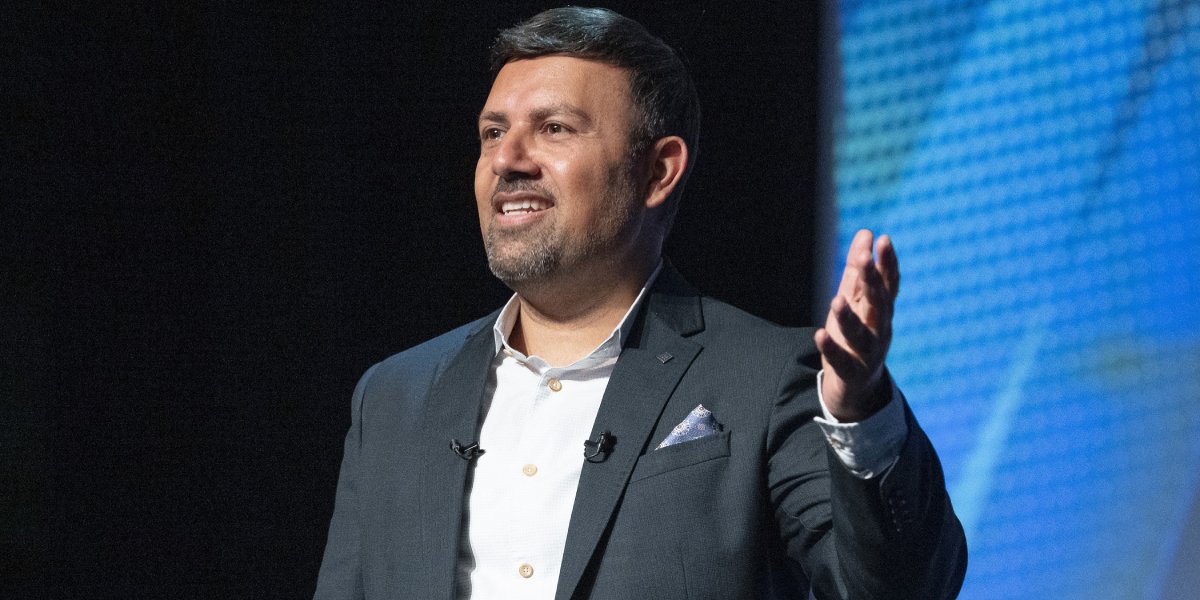Why We Don’t Overcome Adversity

John Register
07/06/2025
Paralympic athlete argues we adapt to adversity, not overcome it.
Adaptation Reality:
We don't overcome adversity; we transform through it.
How many times have we heard, "They overcame great adversity"? It's a phrase we toss around, but I no longer subscribe to it—not because I haven't faced adversity—but because I have.
May 17, 1994. I approached the third hurdle while training for my third Olympic trials. I attacked it, leading with my left leg.
I cleared it. But, when I landed, I heard a loud, SNAP. My body fell in what seemed like slow motion. As I braced for impact, I saw my left shin pass in front of my face. I hit the ground on my right side and skidded to a stop.
Quick body check: shoulders, okay. Waist, okay. But then I saw my knee—my patella displaced three inches up my femur. My left shin was twisted across my right leg. The hyperextension had disrupted my arterial flow to the lower portion of my leg. Seven days later, my leg was amputated.
That moment ended two careers: my military service and my Olympic dreams.
Like many, I was forced into a new reality. Your world gets flipped upside down, whether it's losing a job, a relationship, or your physical ability. The common advice? "Overcome it." But here's the truth: I didn't overcome the amputation.
This realization didn't come overnight. I was preparing for a TEDx Talk about overcoming adversity. In my rehearsals, I kept repeating what I'd always said: I overcame because of my faith, family, and friendships. While true, it lacked the weight I wanted to deliver. It was hollow.
I nearly pulled out of the event. When I told a fellow speaker my thoughts, he challenged me.
"But you've overcome so much," he said. His words made me reflect. After my amputation, I questioned everything. Am I still a husband? A father? Can I support my family? Would I still have somehow had an Army career? All those questions collapsed on me within minutes. I was overwhelmed.
In that chaos of my mind, my wife Alice knelt beside my wheelchair, looked me in the eye, and said, "John, we're going to get through this. It's just our new normal."
That moment lit a spark. I realized I had support, and I had a choice.
Write for us
Inspire Others. Share Your Expertise. Start Conversations
At Global Authority, we believe in the power of diverse voices and fresh perspectives. Whether you’re an industry expert, a passionate storyteller, or someone with a unique experience to share, your words can inspire, educate, and engage our readers.
I left the military and became a sports specialist with the Army's Community and Family Support Center. I went from athlete to administrator, recruiting Olympic-level talent. At the same time, swimming became my physical therapy—I was so fast that I made the U.S. Paralympic Swim Team just 27 months postamputation.
Later, I relearned to run with a prosthetic, made Team USA in track and field, and won a silver medal in the long jump at the 2000 Paralympics in Sydney. I even set the American record.
But that wasn't the end. I founded the U.S. Olympic Committee's Paralympic Military Sports Program, which eventually led to the Warrior Games and Prince Harry's Invictus Games. I expanded the U.S. State Department's Sports Envoy Program to include athletes with disabilities.
So yes, a lot was accomplished. But none of it was about overcoming. I looked back at my friend and said, "I didn't overcome the amputation. If I had, I'd have my leg back." He nodded in agreement as if he were discovering an old phrase afresh. It hit me like lightning. I began testing the phrase on others and every time, they would do the same affirming head nod. So began the quest of what I would do if I did not overcome.
Since that day, I've continued to build my message around it.
Recommended
CEO escapes abusive marriage and corporate cage to redefine authentic success.
CEO builds successful company embracing neurodiversity as competitive advantage.
Entrepreneur teaches self-love and empowerment as foundation for success.
"It is not the strongest of the species that survives, nor the most intelligent, but the one most responsive to change."
- Charles Darwin
Adaptation Reality:
We don't overcome adversity; we transform through it.
Get the strategy + business newsletter delivered to your inbox
Yes, you can provide text passages or key points from the book so that I can use them in the analysis. If this is not possible, then you can simply provide a
Yes, you can provide text passages
Yes, you can provide text passages
Yes, you can provide text passages
Here's now what I teach.
Adversity is something we face, not overcome. And there are four hurdles we must clear:
- Reckoning: This is the realization that we're not getting back what we lost. We grieve. We shift from "I wish it would go back to normal" to "I see what's possible." This is the third hardest part of the model because we have to have self-awareness that extends beyond our current struggle. Once we do, we have hurdled the reckoning.
- Revision: This is the second hurdle. We cast a new vision for our lives. But three forces resist us: other people. Other people believe in us what we can or cannot do, which is based on what they believe they could or could not do if they were in our situation. Next is society. There are many societal norms that have normalized and our own doubts. Was my seeing Captain Hook, the villain of Peter Pan, part of the reason I saw myself as less than because of my amputated leg? And, finally, self. I had the world's best hurdle coaches—but none of them could run a hurdle for me.
- Renewal: This is the rebirth. Once we commit to the new vision, there's no going back. Like when my leg was amputated—that was it. Renewal is scary because you become a beginner again. But this is where real growth happens. It's where you learn to "walk" again. Yes, you might have phantom pains back to a former state, but you are not able to return to it. If you believe you can, then I would argue you are probably in the reckoning and not the renewal. However, once you have given yourself space and grace to learn again, you are now resolute and worthy of the reward. But the reward is not the final destination; it is just a plateau for the next level of growth.
- Reckoning (Revisited): After the celebration, the next reckoning is already forming. Because as the kids say, "Life be lifin'."
So next time you hear someone say, "They overcame adversity," I hope you remember this story. You didn't overcome it—you adapted. You innovated. You elevated. And that's real power.
Get the strategy + business newsletter delivered to your inbox
Yes, you can provide text passages or key points from the book so that I can use them in the analysis. If this is not possible, then you can simply provide a
Yes, you can provide text passages
Yes, you can provide text passages
Yes, you can provide text passages
Before They Were Icons
Challenge Your Knowledge of Business Transformations
Reinventing a business model is tough—but it can be done. Take inspiration from remarkable stories of successful transformations from the past. Test your expertise by taking our brief quiz.
Recommended
CEO escapes abusive marriage and corporate cage to redefine authentic success.
CEO builds successful company embracing neurodiversity as competitive advantage.
Entrepreneur teaches self-love and empowerment as foundation for success.
Explore the latest news
Father finds purpose through daughter's research, transforms failing city project.
07/06/2025
Award-winning author discovers branding through pretzel history and animatronic dragons.
07/06/2025
Internet marketing expert teaches building authority through proven experience only.
07/06/2025
Three strategies accelerate expert recognition: influencer partnerships, media, books.
07/06/2025







